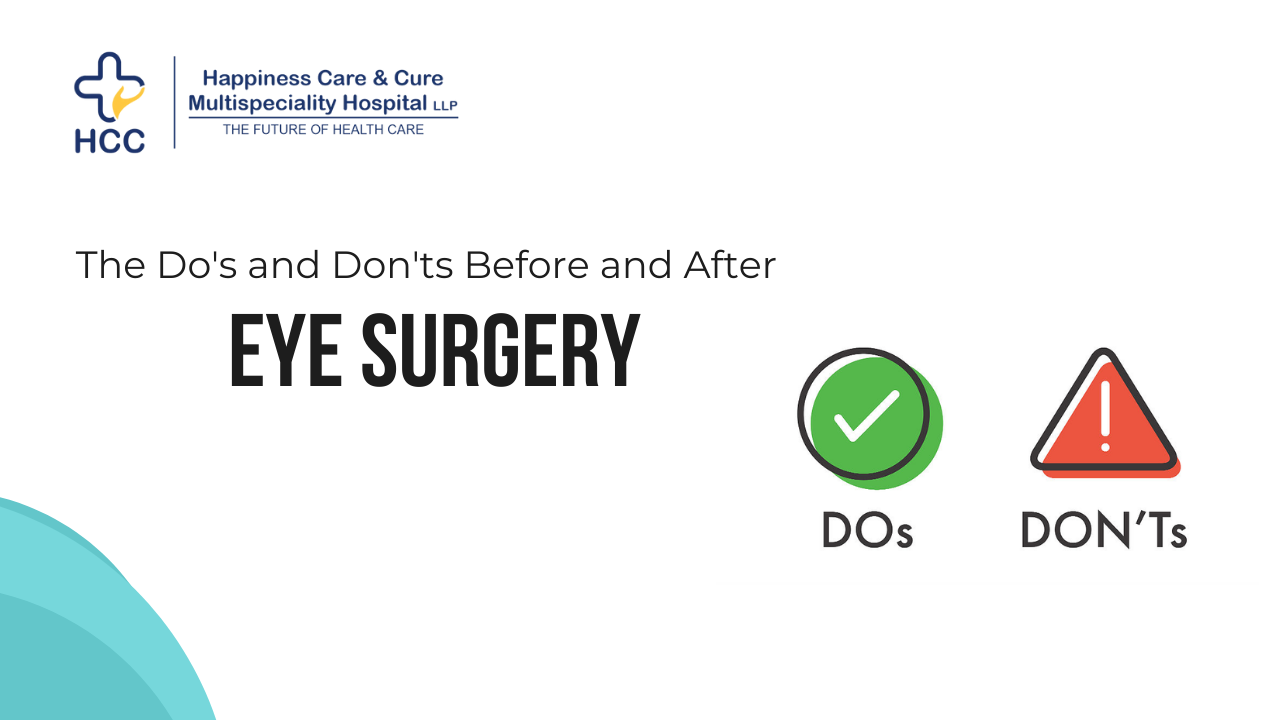
In the realm of medical procedures, few are as delicate and significant as eye surgery. Your eyes, often dubbed the windows to your soul, are precious beyond measure. Whether you're contemplating a vision-enhancing surgery like LASIK, cataract removal, or any other eye-related procedure, it's paramount to grasp the do's and don'ts before and after the operation. This comprehensive guide will serve as your compass, ensuring a smooth journey through the process, from initial preparations to post-operative care.
Preparing for Eye Surgery
Do: Consult a Proficient Ophthalmologist
Your journey into eye surgery should always commence with a consultation from a seasoned ophthalmologist. Their expertise will evaluate your eye health and determine whether you are an ideal candidate for the procedure. This thorough assessment is the foundation of a successful outcome.
Don't: Hasten Your Decision
The decision to undergo eye surgery is not one to be rushed. Take your time to delve into meticulous research, ask questions, and gain a deep understanding of the potential risks and benefits tied to the procedure. Seek multiple expert opinions to ensure you make an informed choice.
Do: Adhere to Pre-Operative Guidelines
Your ophthalmologist will provide a set of pre-operative instructions that are tailored to your specific procedure. These guidelines may include discontinuing the use of contact lenses, abstaining from certain medications, and fasting prior to surgery. Strict adherence to these guidelines significantly reduces the chances of complications.
Don't: Neglect Basic Eye Care
Before your surgery, it's vital to maintain excellent eye health. Avoid activities that may strain your eyes, and safeguard them against injuries or infections. This proactive approach will streamline the surgical process and contribute to a positive outcome.
Post-Operative Care
Do: Prioritize Rest and Recovery
After your surgery, your top priority should be rest and recuperation. Your body needs time to heal, so steer clear of physically demanding activities and ensure you get ample sleep. It's paramount to follow your surgeon's advice regarding when you can safely resume your regular routines.
Don't: Succumb to Eye Rubbing
It's normal to experience some itching or discomfort post-surgery, but one of the most crucial don'ts is refraining from rubbing your eyes. This seemingly harmless action can lead to complications and hamper the healing process.
Do: Adhere to Prescribed Medications
Your ophthalmologist will likely prescribe eye drops or medications to expedite the healing process and minimize the risk of infection and inflammation. Strictly follow the provided instructions for these medications.
Don't: Subject Your Eyes to Harsh Elements
Protect your eyes from harsh environmental elements such as wind, dust, or direct sunlight. Investing in protective eyewear, such as sunglasses, is paramount during the recovery period.
Do: Attend Scheduled Follow-up Appointments
The journey to optimal vision doesn't culminate with the surgery itself. Attending all scheduled follow-up appointments is imperative to monitor your progress, address any concerns, and ensure a successful recovery.
Conclusion
In summation, eye surgery has the potential to be a transformative experience, enhancing your vision and ultimately your quality of life. By meticulously adhering to the do's and don'ts outlined in this guide, you'll be well-prepared for the procedure and the intricate process of post-operative care. Always remember to initiate your journey with a qualified ophthalmologist, take your time in making decisions, and diligently follow both pre- and post-operative instructions. Your vision is an invaluable asset; treat it with the utmost care.
Make an Appoinment